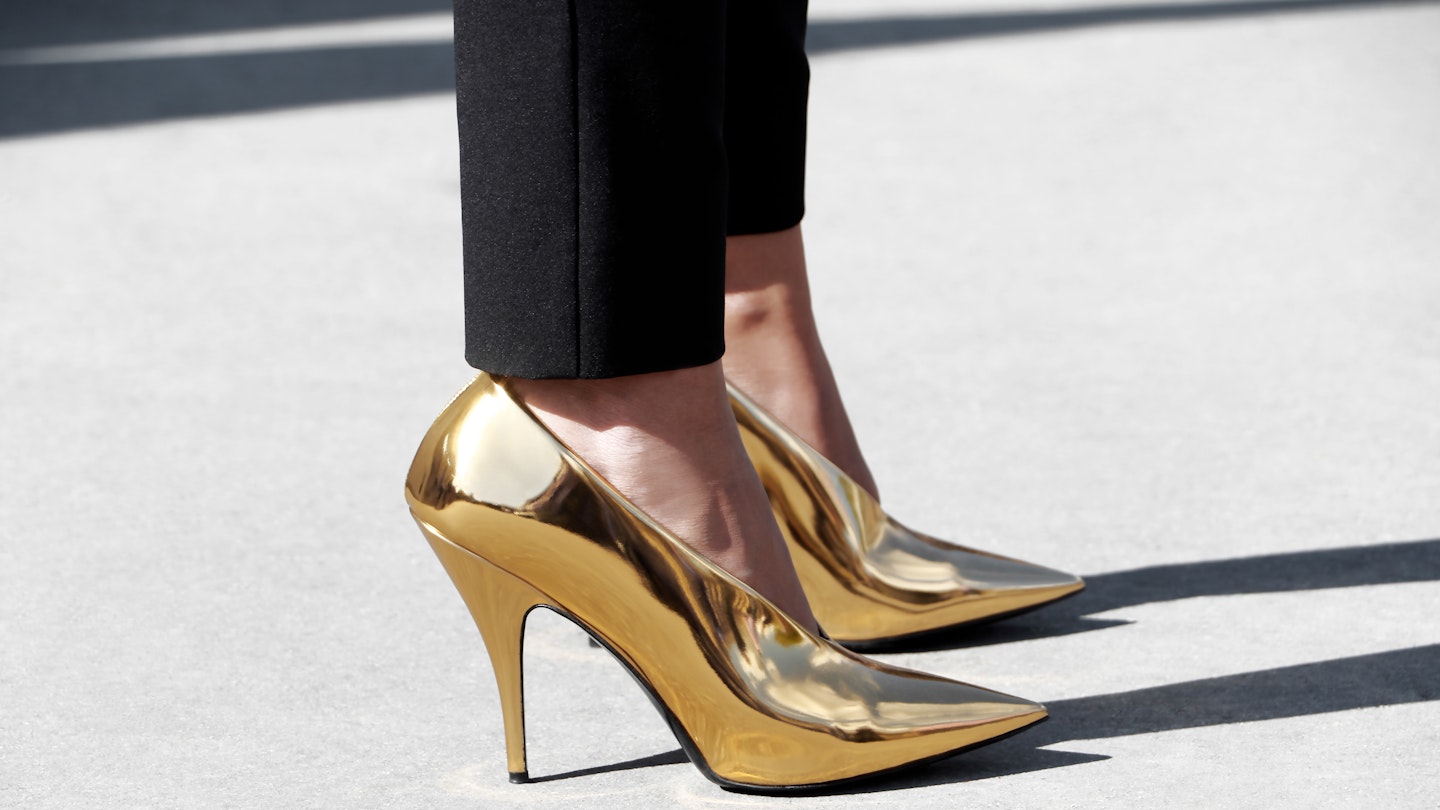I spent four months between years at university working in the children's department of a high end London department store. The major features of this role were being polite to horrible customers, wearing a full face of make-up, and wearing high heels all day long.
After the high-hell of that summer, the idea of running around in heels day in, day out, is unthinkable. So when I watched The Apprentice last night, which featured a variety of bright and brilliant women in very high heels, I couldn't help but wonder: why?
Heels can be great. They're pretty, they make you pleasingly tall, which means towering over everyone else and getting quicker service at the bar. Heels make your legs look longer and they make your bum look great.
But in a work context your leg length or bum perkiness aren't important? And yet there these women are, tottering around in shoes which are unquestionably less practical than a nice sturdy pair of brogues. All because of the pervading myth that for women, workwear means high heels.
When I asked the uniform manager at the department store why I had to wear heels, even though they hurt my feet, she answered: 'because the dress code is formal, and high heels are smart.'
Of course the flaw in this logic is that high heels are smart on women, but flat shoes are smart on men. Smart is a euphemism, a way of expressing that in order for a woman to look like she's made an effort she needs to be in discomfort.
I hope that you've never had the misfortune to wear high heels all day every day for four months, while standing up for nine hours a day. If you have, you'll know what it does to your feet. Suffice to say, I spent that summer giving a prima ballerina competition for who had the worst feet.
Heels don't just hurt, either. For many women, wearing them actively impedes your ability to do a good job. Wearing high heels day in and day out made me move more slowly. It took longer to get to the stockroom because I had to stop and pull my shoes off in order to walk the flights of stairs. Management knew that those of us who weren't comfortable in heels would be faster in flat shoes. But when asked to choose between staff who look good and staff who provide a speedy service, the former was more important than the latter.
Heels reduce your capacity to move quickly or efficiently in exchange for making you look more conventionally attractive. Which is why the obligation or expectation to wear them is problematic.
If you love wearing heels then knock yourself out. But I refuse to believe that every woman on The Apprentice drags herself around in heels because she feels nicer in them. Those women have clearly drunk the international kool-aid which makes us believe being smart is part and parcel with wearing a pair of high heels.
You can look smart in flat shoes. Wearing flat shoes is not a compromise or a failure. A heel is not the natural or obvious conclusion to a formal outfit.
It is still currently legal to force employees to wear high heels to work. A 2017 petition{
So no matter how bad the back pain, bunions or restricted mobility, companies are still allowed to force women to wear heels whenever they like. Great, guys. Really great.
READ MORE: MPs reject petition to ban sexist dress codes in the workplace.
